Virus
-

Early steps in reovirus replication
Conformational change in a reovirus surface protein modulate the virus’s attachment to host cells, Vanderbilt researchers have found. Read MoreOct 6, 2020
-

Probing innate immunity
Manuel Ascano team validates an inhibitor of the cGAS-STING signaling pathway, which is important for cellular innate immunity against bacteria, viruses, and our own damaged DNA. Read MoreMay 19, 2020
-

Antibodies eye Pacific Island “fever”
Vanderbilt Vaccine Center team isolates monoclonal antibodies against the mosquito-borne Ross River virus, which causes rash, fever and debilitating muscle and joint pain lasting three to six months. Read MoreMay 14, 2020
-

Karijolich named 2018 Pew Biomedical Scholar
John Karijolich, PhD, assistant professor of Pathology, Microbiology, and Immunology at Vanderbilt University Medical Center, has been named a Pew Biomedical Scholar by The Pew Charitable Trusts. Read MoreJun 14, 2018
-

Evolution of a deadly virus
Genomic sequences have revealed that Florida is a major source of a mosquito-borne virus that causes disease in horses and humans. Read MoreMay 23, 2018
-

New target to stop Ebola
A new Vanderbilt study suggests it may be possible to develop antibody therapies or a universal vaccine effective against multiple Ebola virus family members. Read MoreMay 21, 2018
-
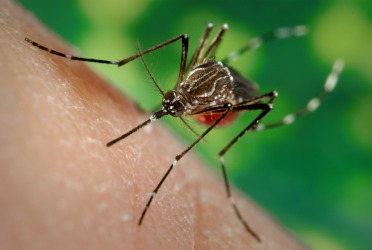
Alphavirus “Achilles heel”
Targeting the protein that mosquito-borne viruses use to enter cells could be a strategy for preventing infection by multiple emerging viruses. Read MoreMay 17, 2018
-

Safe to snuggle with pets while home with a cold or flu, Vanderbilt infectious disease expert says
A comfort, not a hazard. When you are home sick, snuggling up with your dog or cat may feel like just what the doctor ordered. And a Vanderbilt infectious disease doctor, while stopping short of actually prescribing in-home “pet therapy” for colds or… Read MoreJan 13, 2016
-
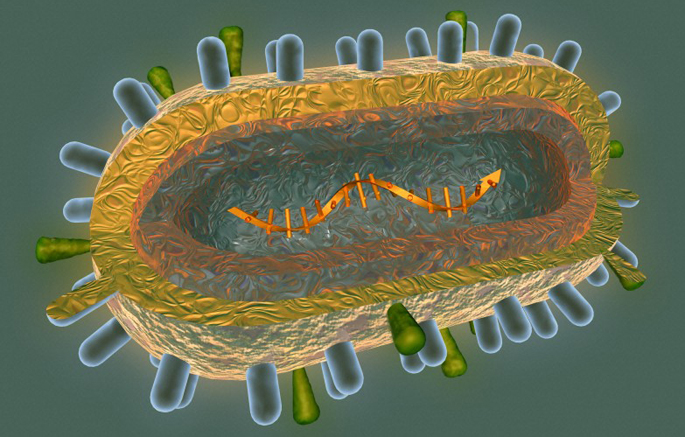
Enzyme holds the door for influenza
Compounds developed at Vanderbilt University may offer a new way to block influenza infection. Read MoreAug 20, 2014
-

Natural killer cells don’t clear HMPV
Understanding how the immune system responds to the respiratory virus HMPV is crucial for developing vaccines and anti-viral treatments. Read MoreJul 23, 2014
-

Respiratory virus vaccine candidate
Virus-like particles containing a protein from human metapneumovirus are a promising vaccine candidate for this respiratory virus. Read MoreMay 27, 2014
-
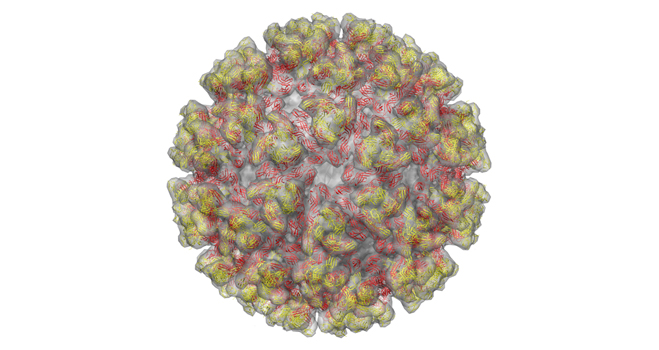
Target cell entry to halt Chikungunya virus
Understanding how chikungunya virus binds to and enters cells offers a new target for antiviral medications. Read MoreApr 28, 2014
-

Grant targets new therapies for Ebola, Marburg viruses
Vanderbilt’s James Crowe Jr., M.D., and a collaborator in Texas have been awarded a $4.4 million grant from the U.S. Department of Defense to study new ways to treat and prevent Ebola and Marburg viruses. Read MoreMay 16, 2013
-

Factor reduces virus-related asthma attacks
An immune system factor associated with severe asthma may actually reduce asthma attacks induced by viral infections. Read MoreApr 26, 2013
-

Breast milk blocks virus binding
Components of human breast milk help ward off viral infection, a new study shows. Read MoreDec 7, 2012
-
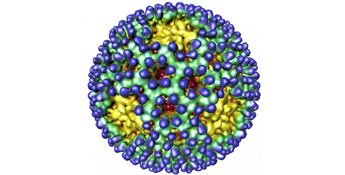
Protein’s length, flexibility key to infection
The structural architecture of the reovirus attachment protein is required for efficient reovirus infection of host cells. Read MoreOct 31, 2012
-
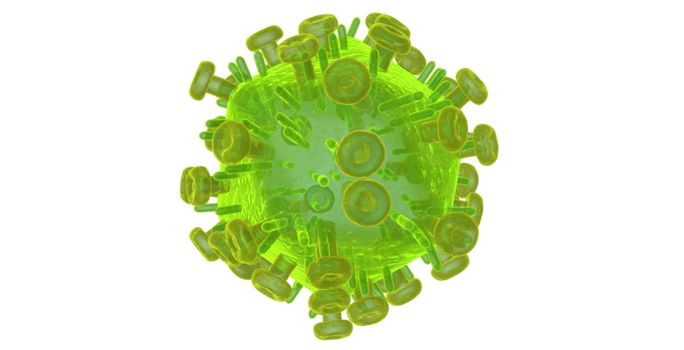
Host proteins can control HIV infection
The protein APOBEC3G contributes to spontaneous control of HIV-1 in vivo and may provide therapeutic benefits. Read MoreOct 5, 2012
-

Cell entry ports for cold virus
The respiratory virus HMPV uses its fusion (F) protein – which interacts with cellular receptors called integrins – to bind to and enter target cells. Read MoreSep 25, 2012
-

New therapeutic target for cold, flu viruses identified
Viruses that cause acute respiratory infections — such as human metapneumovirus (HMPV) and flu — impair a set of immune system cells that should clear the virus from the lungs. Now, Vanderbilt University investigators have discovered the signaling pathway that disables these immune cells. Read MoreAug 9, 2012
-

Researchers spot Achilles’ heel in respiratory virus
A new viral protein structure could jump-start vaccine development for two leading causes of lower respiratory disease in children and elderly adults. Read MoreApr 13, 2012